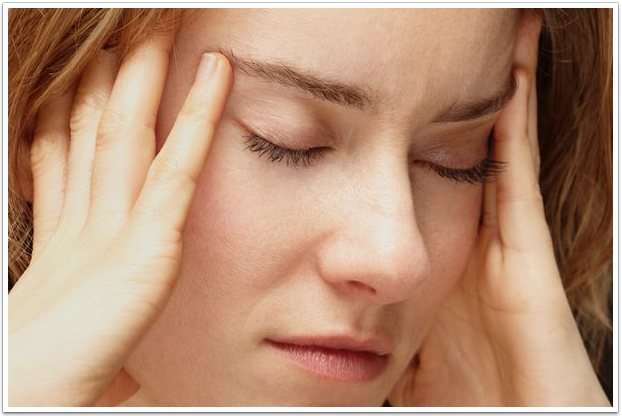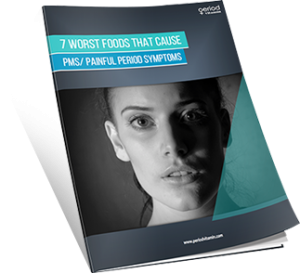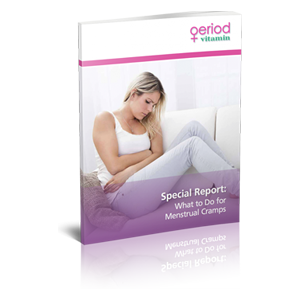Not every woman suffers from PMS Depression, but those that do suffer miserably. What causes this kind of depression before, during and sometimes post menstrual cycle? With so many women suffering from this what is the medical community doing and are there any home remedies that work without using drugs? Is the woman suffering from true depression or pms? How can you know if it is pms rather than freestanding depression? Let’s look at these issues.
Causes and Symptoms of Menstrual Emotions
 We should first look at the differences between a free standing depression and pms. PMS (Pre-menstrual Syndrome) occurs in the first stage of the menstrual cycle while depression could occur at any time in the cycle.
We should first look at the differences between a free standing depression and pms. PMS (Pre-menstrual Syndrome) occurs in the first stage of the menstrual cycle while depression could occur at any time in the cycle.
PMS engendered depression is also known as Premenstrual Dysphoric Disorder (PMDD) and it can be a very serious and devastating syndrome during the time preceding a woman’s period. So we have PMS which is a syndrome and can include PMDD and then we have clinical depression that can occur at any time and is not in any way linked to a woman’s cycle.
The difficulty with distinguishing between a woman who suffers from clinical depression vs. pms is that about 70% of the women who do suffer from PMS depression (PMDD) also suffer from clinical depression and only about 15% of women who do not have PMDD do have clinical depression. The menstrual cycle makes the tendency to clinical depression much worse. Regardless PMDD is not a variation of clinical depression. It is a separate entity entirely. “The Mayo Clinic estimates that up to 75 percent of females have mild to moderate PMS symptoms, including depression, at some point in their reproductive cycle. About 10 percent suffer effects that are severe enough to be classified as PMDD. The depression is accompanied by mood swings, anxiety, tearfulness and even flu-like symptoms.” (http://www.mayoclinic.com/health/pmdd/AN01372)
PMDD occurs in the two weeks prior to a woman’s period and then it is gone. Clinical depression on the other hand lasts much longer than two weeks. PMDD usually shows a dramatic decrease in symptoms once the period flow begins. Clinical depression causes a sense of complete hopelessness, uncontrolled crying and of helplessness as well. Women experiencing depression due to the menstrual cycle can have some of these feelings as well but they will not be nearly as intense nor last beyond the beginning of the menstrual flow. This intensity and timeframe are how a woman can know if it is pms depression rather than clinical.
Still there is a lot of distress that goes with PMDD for any woman. In addition to depression a woman might also experience other mood swings and emotional changes such as anger, anxiety and fatigue and irritability. According to the American College of Obstetricians and Gynecologists, “20 percent to 40 percent of women experience symptoms of PMS and another 2 to 10 percent report severe symptoms.” ( http://www.livestrong.com/article/29178-causes-depression-during-menstruation/#ixzz28XQSBr2X) So what causes this pms depression and PMDD?
Although physicians and researchers are not sure why women experience depression prior to the start of their period, it is believed that the flooding of the women’s system with estrogen is a major factor. Estrogen is believed to have a negative impact on the production of serotonin, a neurotransmitter which the body produces to make us feel good. Once a woman is in the ovulation stage the estrogen is reduced by the production of progesterone. Some women may produce more hormones than other women or be more sensitive to these hormones, and that sensitivity may be genetic. More research is needed in this field.
Remedies and Treatments
So how can a woman deal with this depression or how can she prevent or alleviate it? There are several choices when it comes to treatment and some of it depends upon whether the woman wants a medical solution or a natural/home remedy. There are plenty of options in both areas – both homeopathic and medical.
Medical and Pharmaceutical
- There are serotoninergic antidepressants are used for really extreme PMDD and other less invasive drugs are used.
- There are over the counter (OTC) drugs that claim to help with these emotional swings as well. The two most familiar over the counter drugs are Pamprin and Midol.
- Prozac with the generic Fluoxetine is a serotonin reuptake inhibitor and generally used for depression.
- Zoloft with its generic Sertraline is also a serotonin reuptake inhibitor used for depression.
- Paxil with its generic Paroxetine another one of the serotonin reuptake inhibitor but this one is used for panic attacks and anxiety as well as depression.
- Estradiol and danazol are both hormones that can help to recreate the hormonal balance that the menstrual cycle disrupts.
Natural and Herbal
There are many non-pharmaceutical, home remedies that can be used to get rid or get through this depression. When a women wants to know what to do or what helps to control these feelings, there are plenty of herbal remedies and vitamins and supplements that can help though there is nothing that can really cure it. Here are some of them.
Evening Primrose Oil is effective in helping to ease the symptoms of pms depression. The reason that it is effective is that it decreases the production of the prostaglandins which we have seen can make the depression pms get worse. It also relieves tension and anxiety. Another herb that is helpful in the control of pms depression is black cohosh.
This is an herb used extensively by Native Americans to deal with depression. Perhaps the most common herbal relief for depression is St. John’s Wort. The catch with St. John’s Wort is you have to take it consistently four times a day for several weeks before it kicks in to help prevent or avoid getting depressed to begin with. Vitex, also known as Chasteberry is also a good tonic for pms depression.
Vitamins and Supplements
Basically what you are attempting to do in avoiding or getting over depression associated with pms is to restore the hormonal balance that is disrupted in the premenstrual and first stage of the menstrual cycle. In addition to pharmaceuticals and herbs there are vitamins and supplements that are effective in alleviating or preventing this type of depression. So what are the best vitamins and supplements?
- B complex especially B6, Niacin and pantothenic acid are known for assisting in the prevention and treatment of menstrual cycle depression. Vitamin B complex helps the body to absorb magnesium which we will see later helps depression.
- Calcium is known as a treatment for a variety of menstrual cycle issues including mood shifts and depression. Vitamin D helps the body to use calcium effectively. 1500mg daily is recommended.
- Magnesium is used to reduce depression but it takes a fairly high dose. At least 125 to 300 mg four times a day at least is the dose needed to be effective in treating depression.
- Hydroxy Tryptophan also known as 6-HTP and it’s an amino acid that can help with mood control, sleep and appetite which can also affect depression.
- Zinc is a factor only if the woman has a deficiency to start with. If so then additional zinc will help to prevent depression.
- Vitamin E has been known to help with depression but this is more anecdotal than not.
Lifestyle and Other
 There are many routes to take that involve life style, yoga, diet, and essential fatty acids.
There are many routes to take that involve life style, yoga, diet, and essential fatty acids.
Lifestyle: There are several things you can do to fight pms depression including exercise for at least 35-40 minutes three times a week, and relaxation techniques.
Meditation and guided imagery are also helpful. Anything that helps the woman to relax and change the neurological response of her body to the hormonal changes is effective.
Yoga is effective because it blends together exercise, stretching, meditation and relaxation all into one activity. It is very effective for any type of depression regardless of source.
Diet/Essential Fatty Acids help to reduce prostaglandins. Cod liver oil is a great source of Vitamin D and essential fatty acids. Fish of course is a source of Omega 3 fatty acids, Vitamin D and calcium. Brown rice can give you magnesium, Vitamin B6 and pantothenic acid. Finally in the food category lentils, peas, alfalfa sprouts, bananas, tuna, whole wheat, turkey, rye, cashews and oats are great and healthy sources for the much needed Vitamin B6. Carbohydrates are also good to add in about a week or so before the menstrual cycle as they tend to increase the amount of serotonin in the system and serotonin increases good feelings.
Foods to avoid when you are suffering from either depression or anxiety are caffeine and salt/sodium as well as refined sugar, alcohol, dairy and animal fat.
Acupuncture is also known to create relaxation, help with depression and all forms of anxiety. Full body massage and deep tissue sports massage can also have this effect. Try to get enough and maybe more than usual amount of sleep. Finally try to identify the things in your daily life that cause you the most stress and find a way to reduce it prior to your period.



